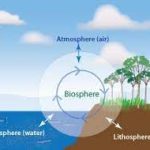Air quality has a profound impact on our health, and emerging research is shedding light on its association with breast cancer incidence. A recent study by the National Cancer Institute (NCI) and the National Institute of Environmental Health Sciences (NIEHS) in the United States found a worrying link between particulate matter pollution (PM2.5) and breast cancer risk. Poor Air Quality is linked to increased Breast Cancer risk. The research team delved into the data from the NIH-AARP Diet and Health Study, which enrolled over 500,000 men and women across several U.S. states in the late 1990s. The focus was on women, primarily white and around 62 years old on average. Over a span of approximately 20 years, the study identified more than 15,800 breast cancer cases.

The Impact of PM2.5 Exposure
One of the most striking findings was the association between PM 2.5 exposure and breast cancer incidence. PM 2.5, released from sources such as motor vehicle exhaust, industrial emissions, and the burning of various materials, poses a significant health risk. It comprises tiny particles that can penetrate deep into the lungs when inhaled.
The study discovered that women residing in areas with higher historical PM 2.5 exposure, particularly during the 10 to 15 years prior to their enrollment, experienced an 8% increase in breast cancer incidence. While this increase may seem modest, it is noteworthy considering the widespread nature of air pollution.
Historical Air Pollution Levels
What sets this research apart is its consideration of historic air pollution levels. Unlike previous studies that primarily looked at contemporary exposures, this study accounted for past exposures. The reasoning behind this lies in the long development timeline of breast cancer. Previous decades often witnessed higher air pollution levels, making past exposures relevant to cancer development.
Differentiating Tumor Types
Another intriguing facet of the study was the differentiation between estrogen receptor-positive (ER+) and -negative (ER-) tumors. The research revealed that PM 2.5 exposure was associated with a higher incidence of ER+ breast cancer, the most common type among women in the United States. This suggests a potential link between endocrine disruption and the development of these tumors. In the quest to understand breast cancer risk factors, air pollution emerges as a significant concern. The findings from this study, published in the Journal of the National Cancer Institute, emphasize the importance of addressing air quality for the overall health and well-being of individuals, particularly women. As we continue to grapple with environmental challenges, it is crucial to consider the long-term consequences of air pollution and its potential impact on breast cancer incidence.
Additional Resources
To check the air quality in your location, you can enter your ZIP code on the Environmental Protection Agency’s Air Now website. As we gain deeper insights into the relationship between air quality and health, it becomes increasingly evident that addressing environmental factors is a critical component of public health efforts. This study serves as a reminder that cleaner air may benefit our lungs and contribute to reducing the risk of certain cancers, particularly breast cancer.
For further information: https://www.msn.com/en-ca/health/medical/dirty-air-could-raise-breast-cancer-risk/ar-AA1gEuJZ?ocid=msedgdhp&pc=U531&cvid=dcb2b9a8261b48e4903e02f10e38cc9e&ei=115
Read our previous articles: https://scitechupdate.com/index.php/treated-wastewater-exerts-an-impact-on-our-rivers/ https://scitechupdate.com/index.php/india-makes-history-by-landing-a-spacecraft-at-the-moons-south-pole/
https://scitechupdate.com/index.php/zinc-air-batteries-could-be-cheaper-and-safer-than-lithium-ion/
https://scitechupdate.com/index.php/android-14-satellite-sms-for-everyone/
https://scitechupdate.com/index.php/chemistry-entrepreneurship/
https://scitechupdate.com/index.php/waste-paper-to-battery-components-for-smarts-phones-vehicles/https://scitechupdate.com/index.php/ai-demonstrated-95-accuracy-in-listening-typing-and-data-processing/
https://scitechupdate.com/index.php/top-7-technology-trends-of-2023-from-ai-to-5d-technology/



Thank you for your sharing. I am worried that I lack creative ideas. It is your article that makes me full of hope. Thank you. But, I have a question, can you help me?
sure ask question